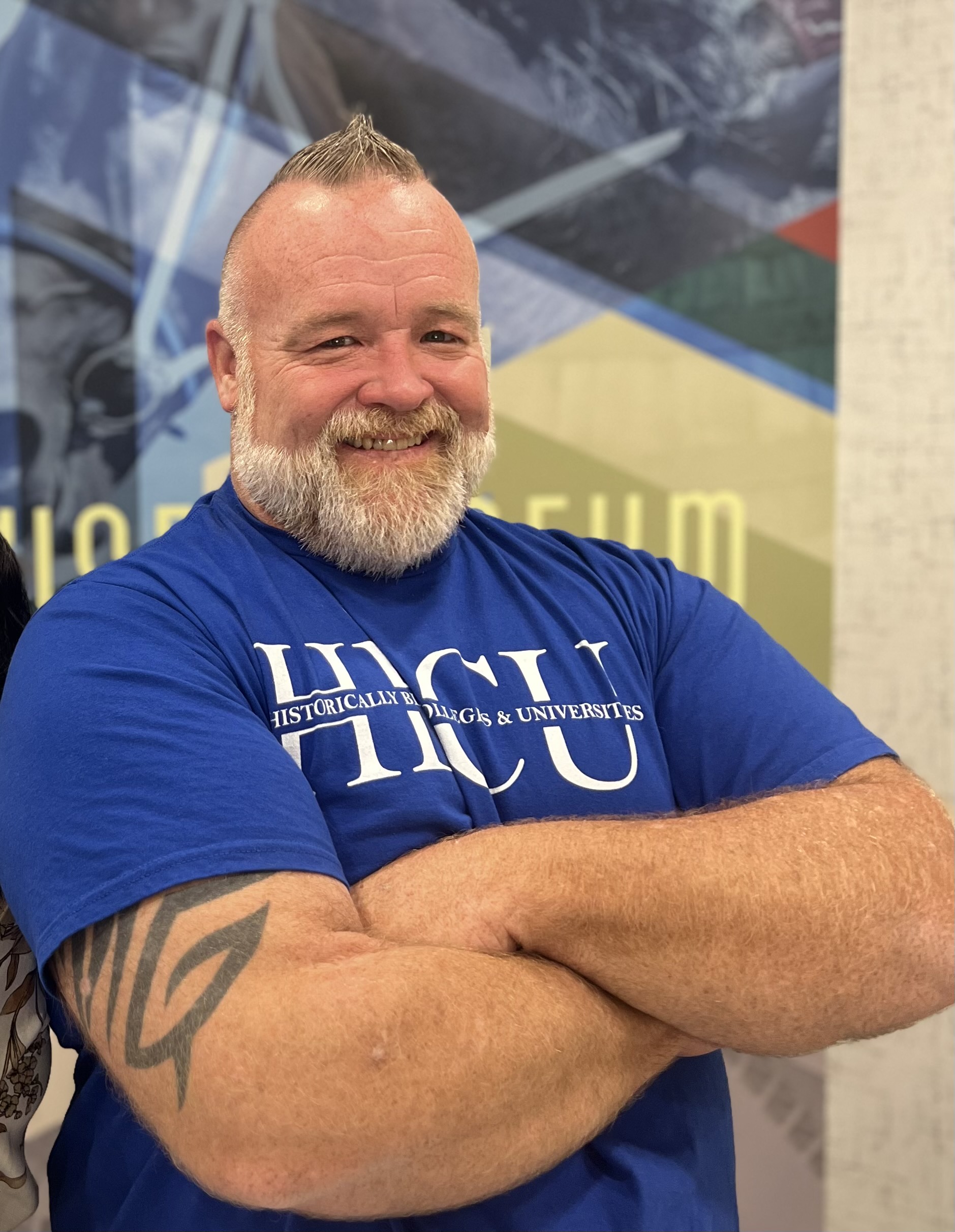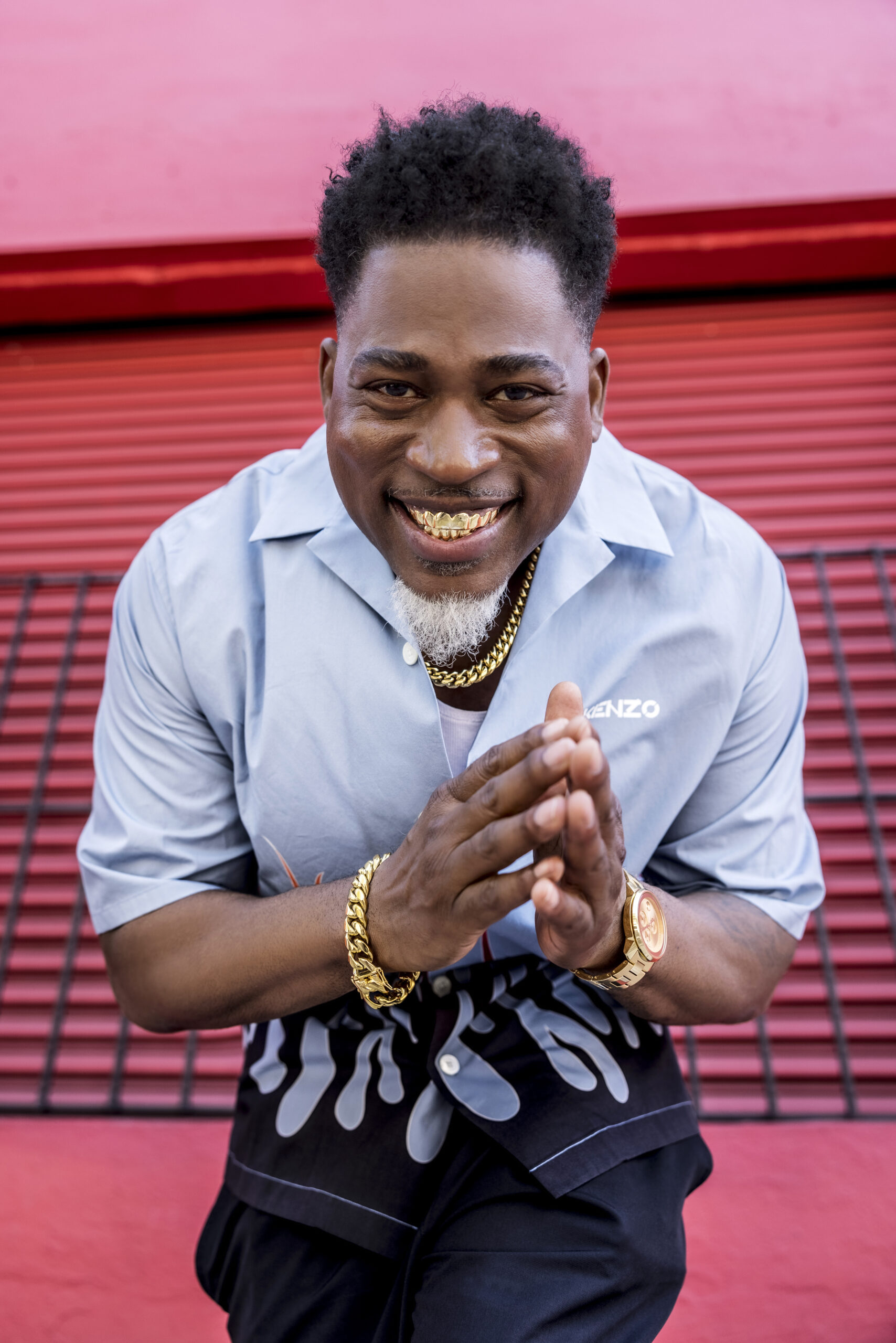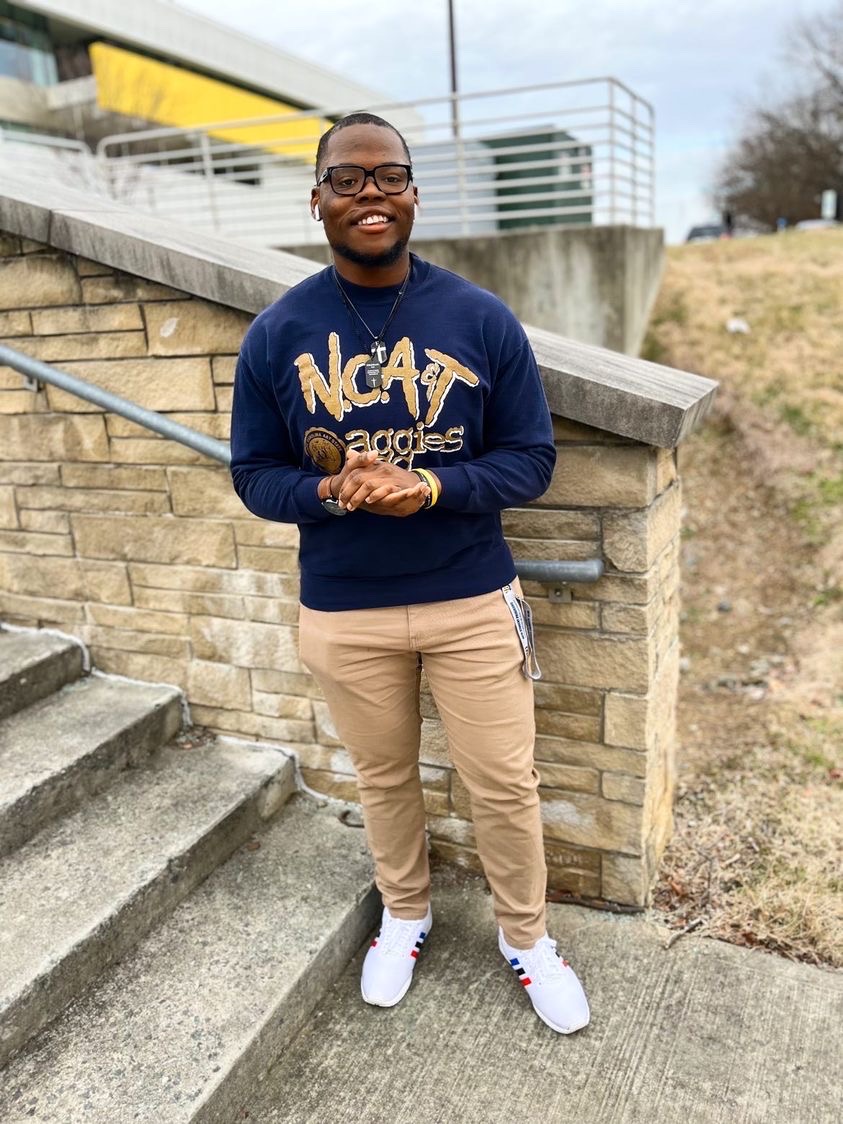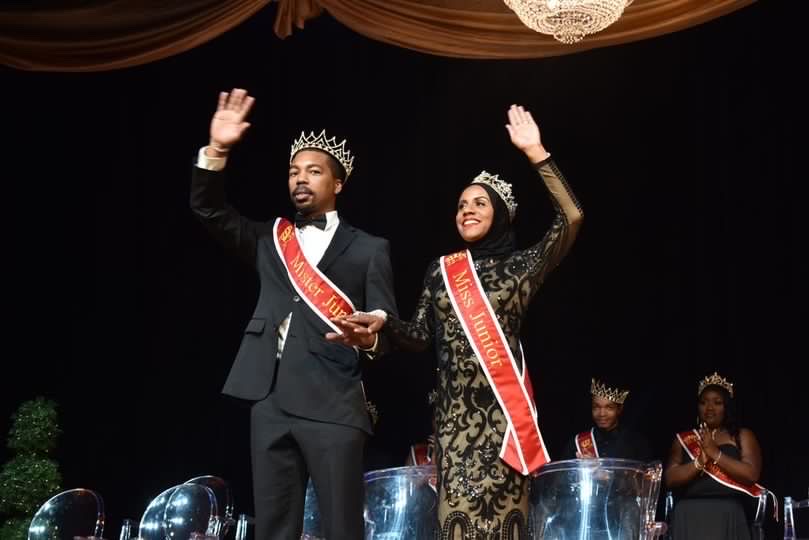GW Sedberry’s journey from being a former racist to traveling across the country in supports of HBCUs, is a testament to the human capacity for change and growth. A journey that began in the shadows of bigotry has evolved into a beacon of hope and solidarity within the HBCU community. In a world often characterized by division and discord, Sedberry’s transformation offers a compelling narrative of reconciliation, commitment, and the redemptive power of education.
In this article, we explore the pivotal moments and profound realizations that led GW Sedberry known on social media as “The Whit George,” to turn away from his former racist beliefs and instead dedicate his life to supporting HBCUs.
1. Tell us about your personal journey from being a former racist to becoming an avid supporter of HBCUs? What inspired this transformation?
I’m a total history geek. I had to separate what I had been taught versus what I learned myself. I was disturbed that many things didn’t align. So as I went down the rabbit hole of American history, I became fascinated with Black American history, and all its fascinating and beautiful aspects. It opened my mind to things I had either never considered, and it broadened my perspective on the human condition overall.
2. What specific events or experiences in your life led to your change in perspective and beliefs regarding race and HBCUs?
The 3 years I spent in prison left an indelible mark on my character. It exposed me to other walks of life who might live down the street from me, yet had a completely different experience growing up.
I grew up less than an hour from 4 HBCUs growing up. Except back then they were “Black Colleges.” I had white friends who attended all 4 of these schools for advanced degrees, despite getting their Bachelor’s degree from a PWI. The 2 biggest reasons? Cost, and the faculty to student ratio was way higher than traditional schools. That caught my attention. Why? What made these schools attractive to only “people in the know?” I was intrigued and had to learn more.
3. Do you have a memorable experience or encounter from your travels to HBCUs that had a profound impact on you, or reinforced your commitment to supporting them?
Two, actually. We visited Fisk University in July and met everyone from the interim President on down. We came to support a charity for foster children who make it to college, but left with several new friends and a wonderful memory. I absolutely would recommend my or my friend’s children attend Fisk. I know they will be well cared for.
The other is Tennessee State. We recently went in support of TSU when they played Notre Dame. I was asked if we’d like to attend by an HBCU supporter and we immediately agreed. I then was connected with Professor Larry Jenkins, one of the Grammy Award winning Aristocrat of Bands directors. He invited us to come sit by the band, talk to him, etc. This was at Notre Dame stadium, where Reggie McDonald, a TSU band director, led the Fighting Irish Marching Band in an amazing rendition of the Star Spangled Banner. After that, I got to see Heisman Trophy Winner Eddie George lead the Tigers onto the field. Then, at halftime, ND asked TSU to close their own halftime show out of respect, and the AOB knocked it out of the park. I watched Notre Dame fans stay glued to their seats for the performance, and then they showed their appreciation for what they just experienced. I did this all while sitting next to a TSU alumni and former AOB Marching Band member. We were the only white TSU fans we saw and we loved it.
4. What aspects of HBCU history and culture do you find most compelling?
That’s easy. The beauty and brilliance that is born from these school’s struggle to come into existence, survive, and then thrive. The level of academic and practical genius these schools have set loose on the world are absolutely mind blowing.
5. What are your future plans and aspirations for the “HBCU Travel Challenge”? How do you hope to continue raising awareness and support for HBCUs?
We’re in the logistics stage of making the HBCU Travel Challenge. This will be happening soon. We intend to travel to all 100 campuses, highlighting their history, the school, the alumni, band, athletics, and the future of the school. Our goal is to shine a bright light on these historic and powerful colleges and universities that many people don’t know exist.
6. As a TikTok influencer, in your opinion, what role do influencers and content creators play in promoting social change and awareness about important issues like racial equality and education?
Steve Jobs famously once said “The most powerful person in the world is a Storyteller. They have the ability to shape our future and vision as a society.” I’m paraphrasing, but you get my point. I think creators and influencers have more impact on societal change than even realize. I think people are long overdue for transparent and direct dialogue with the issues that plague our society, and social media has opened the door to that in a big way.
7. What advice would you leave for people who may be struggling with their own biases or prejudices and seeking a path toward positive change?
First off, you have to admit that you harbor these feelings towards other people. Once you do that, things will start to speed up. You have to accept that your character is flawed and identify the flaws themselves. Forgiving yourself is difficult for a lot of people to do. But it must be done to move forward, because resenting yourself for your previous actions does nothing to promote personal growth on a journey to become a better human being.
But the single best piece of advice I can offer is this: introduce yourself to people of color.
Have conversations, develop a friendship, and break bread together. Invite a family into your home for laughter and fellowship. There is far more common ground between us than things that separate us. One of the best ways to combat that bias, discrimination, oppression, and bigotry is to start putting a human face up against your subconscious bias. It’s easy to hate something inanimate; it’s far more difficult to hate a person you know and like.
Follow George on all social media platforms @thewhitgeorge to follow along with his journey




